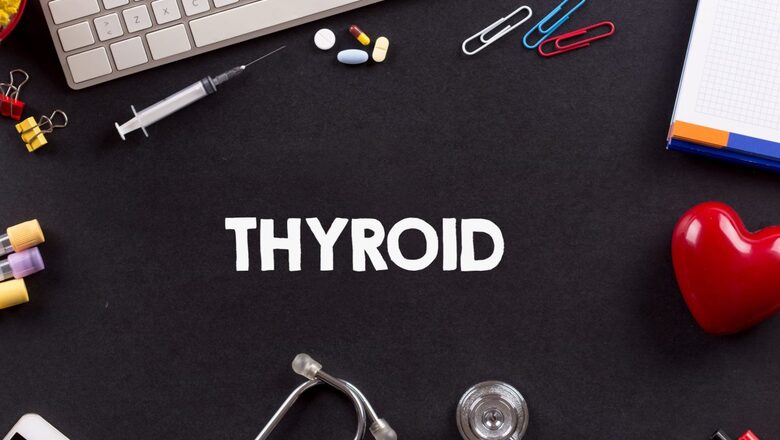
views
Thyroid disorders, particularly hypothyroidism and hyperthyroidism, can have significant implications for cardiovascular health. When thyroid hormone levels are imbalanced, it can affect heart function and increase the risk of cardiovascular diseases. Hypothyroidism is associated with elevated cholesterol levels, increased blood pressure, and a higher likelihood of developing heart disease, including congestive heart failure. On the other hand, hyperthyroidism can lead to a rapid heart rate, irregular heart rhythms, and an increased risk of atrial fibrillation and other cardiac complications. Proper management of thyroid disorders, through medication and regular monitoring, is crucial to minimize the impact on cardiovascular health and reduce associated risks.
What are the many forms of thyroid illnesses and how are they treated?
Whether it is hypothyroid or hyperthyroid, studies show direct relation with cardiovascular diseases. Dr Sudha Desai, General Physician, Consultant Physician and Internal Medicine, Ruby Hall Clinic, Hinjewadi explains that thyroid disease increases the risk of cardiovascular diseases.
- Experiment studies shows both excess of or deficiency of thyroid hormone can lead to atrial and ventricular arrhythmias, atherosclerotic vascular disease, dyslipidemia and even heart failure.
- Forms of Thyroid Illness:Hyperthyroidism which causes ovaries disease, has many symptoms such as weight loss, excessive sweating, arrhythmia (irregular heartbeat) protruding eyes.
Hypothyroidism which shows symptoms like weight gain, intolerance to cold, anxiety, trouble sleeping, dry skin, irregular menstruation.
Doctors perform blood tests to measure TSH and thyroid hormone levels. A high TSH level and low thyrocrine means underactive thyroid. RX for Hypothyroid is thyroid hormone pill.
Do hormonal changes play role in thyroid diseases?
“Thyroid hormones play an important role in metabolism, too much thyroid hormones can make it faster and too little can slow down metabolism. As Thyroid diseases are more prominent in female estrogen has a well-known indirect effect on thyroid. It increases the thyrocrine binding globulin. But, the bottom-line is Thyroid is a treatable disease,” adds Dr Desai.
Dr Prasad Kuvalekar, Internal Medicine Consultant Physician, DPU Private Super Speciality Hospital, Pune, opines, “Clinically, both excess and deficiency thyroid hormone can cause or worsen cardiovascular problems such as atrial and ventricular arrhythmias, atherosclerotic vascular disease, dyslipidemia, and heart failure, contributing to an increased risk of morbidity and mortality. So, while examining cardiovascular problems, search for thyroid disorders.”



















Comments
0 comment